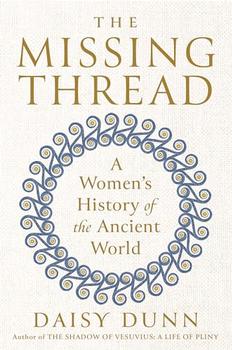
The Story of Science, Discovery, and the Genius of the Royal Society
Edited and introduced by Bill Bryson, with original contributions from "a glittering array of scientific writing talent" (Sunday Observer) including Richard Dawkins, Margaret Atwood, Richard Holmes, Martin Rees, Richard Fortey, Steve Jones, James Gleick, and Neal Stephenson, among others, this incomparable book tells the spectacular story of science and the international Royal Society, from 1660 to the present. Seeing Further is also gorgeously illustrated with photographs, documents, and treasures from the Society's exclusive archives.
On a damp weeknight in November three hundred and fifty years ago, a dozen men gathered in London. After hearing an obscure twenty-eight-year-old named Christopher Wren lecture on the wonders of astronomy, his rapt audience was moved to create a society to promote the accumulation of useful - and fascinating - knowledge. At that, the Royal Society was born, and with it, modern science.
Since then, the Royal Society has pioneered global scientific exploration and discovery. Its members have split the atom, discovered the double helix and the electron, and given us the computer and the World Wide Web. Isaac Newton, Charles Darwin, Albert Einstein, Robert Hooke, Robert Boyle, Joseph Banks, Humphry Davy, John Locke, Alexander Fleming, Stephen Hawking - all have been fellows. Bill Bryson's favorite fellow is the Reverend Thomas Bayes, a brilliant mathematician who devised Bayes' theorem. Its complexity meant that it had little practical use in Bayes' own lifetime, but today his theorem is used for weather forecasting, astrophysics, and even stock-market analysis. A milestone in mathematical history, it exists only because the Royal Society decided to preserve it - just in case.
Truly global in its outlook, the Royal Society now is credited with creating modern science. Seeing Further is an unprecedented celebration of its history and the power of ideas, bringing together the very best of science writing.
"Starred Review. Bryson's name will bring readers in, but the real reward is fine writers writing about serious science in an accessible, good-natured style. It is a worthy celebration of the Royal Society." - Publishers Weekly
"This is a commemorative, collector's item with world-class contributors, worth acquiring for that reason alone. Its most ardent readers will be science history buffs." - Library Journal
"Premium vest-pocket histories of science." - Kirkus Reviews
This information about Seeing Further was first featured
in "The BookBrowse Review" - BookBrowse's membership magazine, and in our weekly "Publishing This Week" newsletter. Publication information is for the USA, and (unless stated otherwise) represents the first print edition. The reviews are necessarily limited to those that were available to us ahead of publication. If you are the publisher or author and feel that they do not properly reflect the range of media opinion now available, send us a message with the mainstream reviews that you would like to see added.
Any "Author Information" displayed below reflects the author's biography at the time this particular book was published.
Bill Bryson was born in Des Moines, Iowa. He moved to England, where he worked for The Times and The Independent, and wrote for many major British and American publications.
Bill Bryson's bestselling books include A Walk in the Woods, Notes From a Small Island, In a Sunburned Country, Bryson's Dictionary of Troublesome Words, A Short of History of Nearly Everything, which earned him the 2004 Aventis Prize, and The Life and Times of the Thunderbolt Kid. He was chancellor of Durham University, England's third oldest university, from 2005 to 2011, and is an honorary fellow of Britain's Royal Society. Bryson lives in England with his wife and children.




A library is a temple unabridged with priceless treasure...
Click Here to find out who said this, as well as discovering other famous literary quotes!
Your guide toexceptional books
BookBrowse seeks out and recommends the best in contemporary fiction and nonfiction—books that not only engage and entertain but also deepen our understanding of ourselves and the world around us.